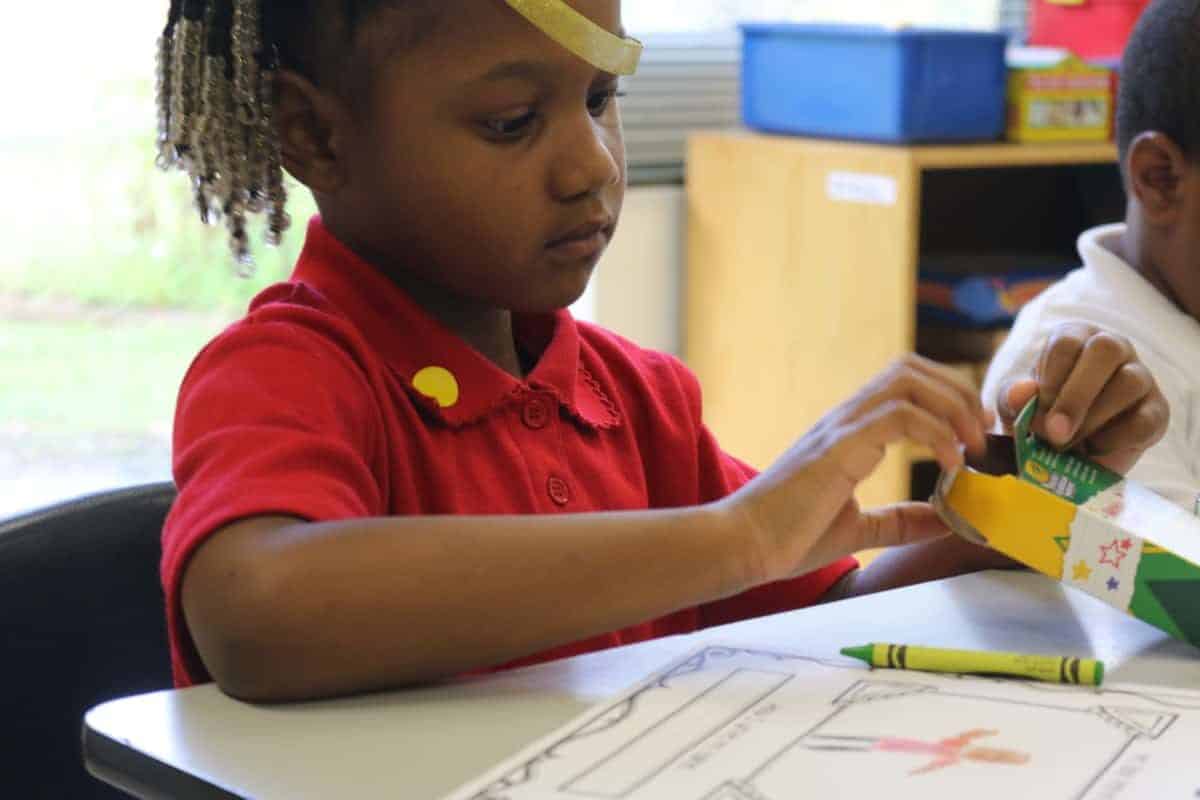

In North Carolina, 43% of 4-year-olds are in some form of licensed child care, whether it is public or private. The rest are in non-licensed programs, informal settings, or at home with a caregiver. At 5 years old, all children come to kindergarten. What does it mean to be ready for that transition? And how do teachers meet the needs of children coming from a variety of different academic, social, and developmental levels?
Research shows being in a high-quality educational setting before kindergarten makes a difference in academic success. In a January 2019 Duke University study, researchers found positive academic impacts lasting through middle school from NC Pre-K, the state’s public preschool for at-risk 4-year-olds. Jennifer George, a kindergarten teacher at Bailey Elementary in Nash County, said she sees why preschool matters each year.
“My wish is that every child could have a chance to go to pre-K or preschool, just to have that chance to be in a school, to be in a classroom, to get to socialize,” said George, who has taught kindergarten for more than 20 years. “… I’ve noticed over the years that the kids that have had that chance, that really gives them a head-start for kindergarten.”
Watch below as five kindergarten teachers from eastern North Carolina discuss what child, teacher, and school readiness mean in their classrooms.
Readiness is not only a matter of a child’s level of social and academic preparedness. Teachers and schools must be ready to meet children’s needs wherever they come in, said Brittney Ruffin, kindergarten teacher at Scotland Neck Elementary in Halifax County.
“As a teacher, it’s your job to meet them where they are and then hold their hand and walk them through the process,” Ruffin said. What that looks like is different at every school and in every school district. Most kindergarten teachers do some sort of assessment before children arrive or in the first days of kindergarten. Teachers then group children by academic level so they can differentiate their instruction based on what children need.
“Kindergarten, it’s only 10, maybe 15 minute whole-group sessions, and then it’s nothing but small groups,” said Taylor McNab, a kindergarten teacher at Coker-Wimberly Elementary in Edgecombe County. “You might be working on adding already with one group… but then you’re still working on, ‘This is the number one, this is the number two.'”
Creating a safe and trusting classroom community is the priority for kindergarten teachers in the first weeks of school. Laying down routines, getting children used to rules, and forming relationships with students is often the basis of the first semester.
“If they don’t trust you, they’re not going to learn from you,” McNab said.


